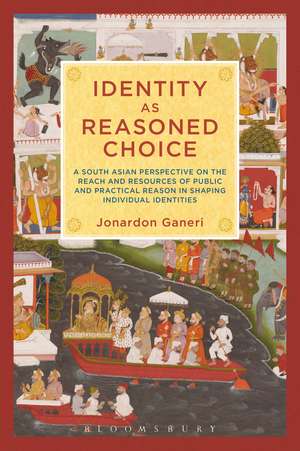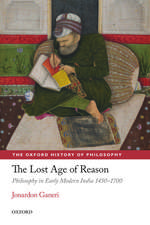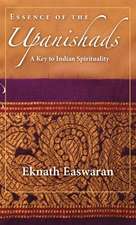Identity as Reasoned Choice: A South Asian Perspective on The Reach and Resources of Public and Practical Reason in Shaping Individual Identities
Autor Dr. Jonardon Ganerien Limba Engleză Paperback – 18 dec 2013
| Toate formatele și edițiile | Preț | Express |
|---|---|---|
| Paperback (1) | 257.12 lei 6-8 săpt. | |
| Bloomsbury Publishing – 18 dec 2013 | 257.12 lei 6-8 săpt. | |
| Hardback (1) | 890.28 lei 6-8 săpt. | |
| Bloomsbury Publishing – 4 apr 2012 | 890.28 lei 6-8 săpt. |
Preț: 257.12 lei
Preț vechi: 295.21 lei
-13% Nou
Puncte Express: 386
Preț estimativ în valută:
49.20€ • 51.06$ • 41.13£
49.20€ • 51.06$ • 41.13£
Carte tipărită la comandă
Livrare economică 17-31 martie
Preluare comenzi: 021 569.72.76
Specificații
ISBN-13: 9781623565886
ISBN-10: 162356588X
Pagini: 256
Dimensiuni: 153 x 234 x 14 mm
Greutate: 0.35 kg
Editura: Bloomsbury Publishing
Colecția Bloomsbury Academic
Locul publicării:New York, United States
ISBN-10: 162356588X
Pagini: 256
Dimensiuni: 153 x 234 x 14 mm
Greutate: 0.35 kg
Editura: Bloomsbury Publishing
Colecția Bloomsbury Academic
Locul publicării:New York, United States
Caracteristici
An accessible resource drawing on classical Indian political and philosophical thought
Notă biografică
Jonardon Ganeri writes on Indian philosophical theory in relation to the analytical tradition, on early South Asian modernity, and on conceptions of the human subject.
Cuprins
PrefaceIntroduction: The Reach and Resources of ReasonPART I: PUBLIC REASON PROMOTED1. An Ideal of Public ReasonPublic reason in the Questions of MilindaAn ideal of public reason in the Nyaya-sutra2. Ancient Indian Logic as a Theory of Case-Based ReasoningA model of reasoning in the Nyaya-sutraThe theory transformedRetrieving the ancient case-based model3. Neutrality: a Theory From the Time of AsokaA Buddhist treatise on public reason: the Elements of DialogueEight stances in a dialogueThe 'way forward' and the 'way back'4. Local Norms: the Priority of the ParticularRules versus casesThree models of particulars as standardsParticulars as paradigms in the Nyaya-sutraParticulars as prototypes in the Ritual SutrasPART II: PRACTICAL REASON RESOURCED5. The Critic WithinMultiple HinduismsA dissenting voiceMeeting reason with reasonEvidence, expertise and assentReligion and reason 6. Adapt and SubstituteThe hermeneutics of ritualEthics in the Hindu canonThe reason of sagesAdaptive reasoning from paradigms7. Model Humans and Moral InstinctsPersons as paradigms of exemplary conductEthical dilemmas: the 'case' The heart's approval: moral instinctPART III: DISSENT8. Implied Voices of DissentThe paradox of inquiryInquiry as adjudicationThe challenge reformulated in Sa?kara9. Can One Seek to Answer any Question? Srihar?aOn questioning: the pragmatics of interrogative dialogueThe prior knowledge argumentAgainst aimingThe longing for knowledgePART IV: IDENTITY, FOUND OR FASHIONED?10. On the Formation of SelfSpiritual exercises and the aesthetic analogyPhilosophy as medicinePlutarch and the Buddhists: returning oneself to the presentA life complete at every momentTaming the selfPhilosophy and the ends of life11. Problems of Self and IdentityReincarnation and personal identityHigher and lower selvesBad thoughts and conscienceNo self?Being true to your individual self12. Identity and Illusions about the SelfSpeaking about the selfPolestar and compass: two modes of practical reasonThe ethics of self-deception and the reach of reasonCognitive stories13. "What You Are You Do Not See, What You See is Your Shadow"The philosophical doubleThe double in Mauni's fictionSelf to selfInhabiting an identityPART V: IDENTITY & THE MODERN INTELLECTUAL14. Interpreting Intellectual India Questions of method Objectivity Immersion15. An Exemplary Indian Intellectual Bimal Krishna Matilal A conversation among equals A common ground? 16. India and the Shaping of Global Intellectual Culture Covert borrowings Other routes of influenceConcluding SummaryBibliography
Recenzii
"Drawing on premodern answers to rethink postmodern questions, and doing so with a philosopher's rigor, a non-philosopher's readability, and enormously creative thinking, Jonardon Ganeri does two important things at once. He suggests how to move forward into the future on the thorniest problems of self-identification, while revealing the depths of India's intellectual past and the resources it can offer for that task." -Sheldon Pollock, Columbia University
"Recent philosophical writing on the subject of identity. though often focused on distant parts of the globe, has failed to tap the philosophical traditions outside the West in the analyses it provides. This ambitious book admirably overcomes that limitation and locates in the tradition of Indian philosophy a basis for the idea that our identities are not given to us but are rationally chosen. Its range of historical reference --from Manu to Matilal-- is impressive and presented with confidence and verve. It will add rigour and detail and historical depth to a concept ('identity') that still remains relatively indisciplined in its deployment in the study of politics and culture." - Akeel Bilgrami, Johnsonian Professor of Philosophy, Department of Philosophy, Committee on Global Thought, Columbia University, New York.
Laudable both for its academic and philosophical rigor and the extent to which the traditions discussed in this book are deeply in play among individuals and groups interested in Eastern spirituality, I should hope that Ganeri is suitably commended for successfully meeting the criteria of both sets of readers - though I can't imagine how pleased the reader in the centre of this particular Venn diagram might be.
Taking Amartya Sen's claim about India's long traditions of debate and tolerance of diversity as his starting point, this engaging and thought-provoking book explores a number of specific examples of argumentation and public reasoning in traditional Indian sources. Yet Ganeri's approach is far more rigorous, examining a wide variety of sources, including: Nya¯ya texts on logic, philosophical narratives in the Upanis?ads, Nika¯yas, and the Maha¯bha¯rata, and S´abara's commentary on the Mi¯ma¯m?sa¯ Su¯tra. Throughout, Ganeri highlights the ways Indian sources make reasoned arguments, linking pre-modern examples of public and practical reason to current debates about politics and identity in India. One of Ganeri's central arguments is that India's religious traditions can sustain secular and democratic ideals. Such claims have much to offer recent debates about secularism and the role of religion in the public sphere.
"Recent philosophical writing on the subject of identity. though often focused on distant parts of the globe, has failed to tap the philosophical traditions outside the West in the analyses it provides. This ambitious book admirably overcomes that limitation and locates in the tradition of Indian philosophy a basis for the idea that our identities are not given to us but are rationally chosen. Its range of historical reference --from Manu to Matilal-- is impressive and presented with confidence and verve. It will add rigour and detail and historical depth to a concept ('identity') that still remains relatively indisciplined in its deployment in the study of politics and culture." - Akeel Bilgrami, Johnsonian Professor of Philosophy, Department of Philosophy, Committee on Global Thought, Columbia University, New York.
Laudable both for its academic and philosophical rigor and the extent to which the traditions discussed in this book are deeply in play among individuals and groups interested in Eastern spirituality, I should hope that Ganeri is suitably commended for successfully meeting the criteria of both sets of readers - though I can't imagine how pleased the reader in the centre of this particular Venn diagram might be.
Taking Amartya Sen's claim about India's long traditions of debate and tolerance of diversity as his starting point, this engaging and thought-provoking book explores a number of specific examples of argumentation and public reasoning in traditional Indian sources. Yet Ganeri's approach is far more rigorous, examining a wide variety of sources, including: Nya¯ya texts on logic, philosophical narratives in the Upanis?ads, Nika¯yas, and the Maha¯bha¯rata, and S´abara's commentary on the Mi¯ma¯m?sa¯ Su¯tra. Throughout, Ganeri highlights the ways Indian sources make reasoned arguments, linking pre-modern examples of public and practical reason to current debates about politics and identity in India. One of Ganeri's central arguments is that India's religious traditions can sustain secular and democratic ideals. Such claims have much to offer recent debates about secularism and the role of religion in the public sphere.














